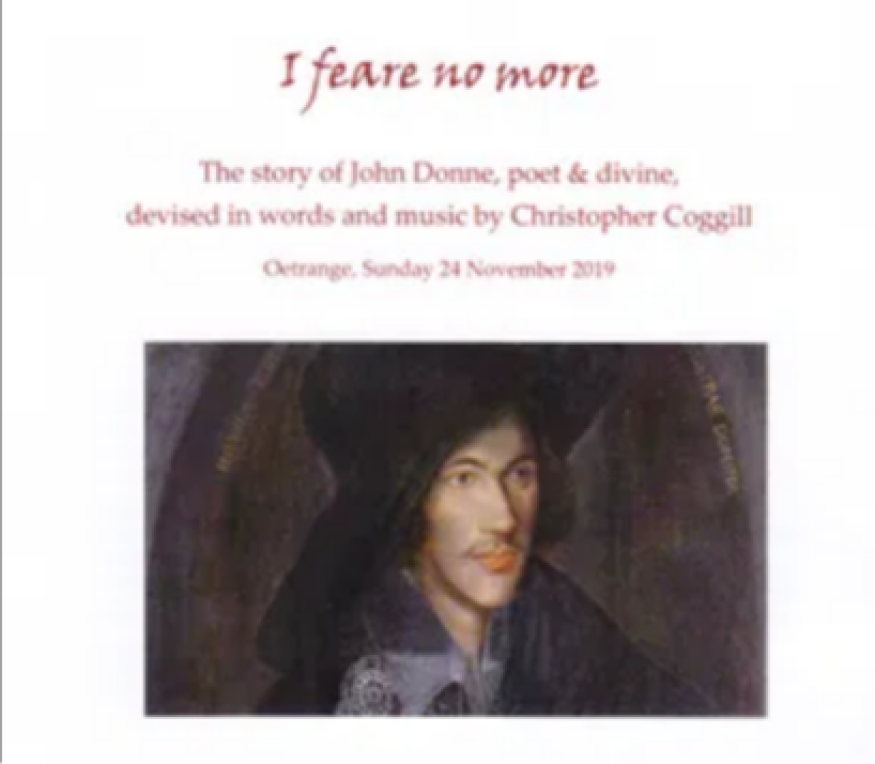
 John Donne was an English poet and cleric in Church of England (1572-1631). He was considered the preeminent representative of the metaphysical poets. His Work were noted for his strong, sensual style, sonnets, love poems, religious poem, Latin translations, Elegies, epigrams, songs, satire and sermons.
John Donne was an English poet and cleric in Church of England (1572-1631). He was considered the preeminent representative of the metaphysical poets. His Work were noted for his strong, sensual style, sonnets, love poems, religious poem, Latin translations, Elegies, epigrams, songs, satire and sermons.
Here are the closing song lines (unknown composer) taken from Part I of the impressive performance given on Sunday by the Melusina Consort (podcast excerpts):
Dearest love, I do not go,
For weariness of thee,
Or that the world can show
A fitter love for me.
But since that I Must die at last,
'tis best to use my self in jest,
Thus by feigned death to die.
Yesterday the sun went hence,
And yet is here today;
He hath no desire nor sense,
Nor half so short a way.
Then fear not me, since I do make
Speedier journeys, and do take
More spurs and wings than he.
Departure is always tearful and fearful. John Donne, in this poem, explains the reason of departure to his wife. He says that he is not going away because his love and feelings for his wife are expired; it is not the case that he is fed up from her company nor he is leaving her because he has found another girl but because parting is the law of nature. The poet refers death here. No matter how long two lovers love each other in this world; ultimately, they have to die. Death would end their love. So, the poet sees death as another kind of separation... (Anwaar Ahmed)
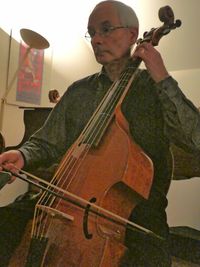
The other featured songs and music pieces are:
Come, pretty wag and sing (Martin Peerson, c.1571-1651)
Variations on 'John, come kiss me now' (John Tomkins, 1589-1638)
Air for two bass viols (Simon Ives, 1600-1662)
The Message (John Coprario, 1570-1626)
To ask for all thy love (John Dowland, c.1563-1626)


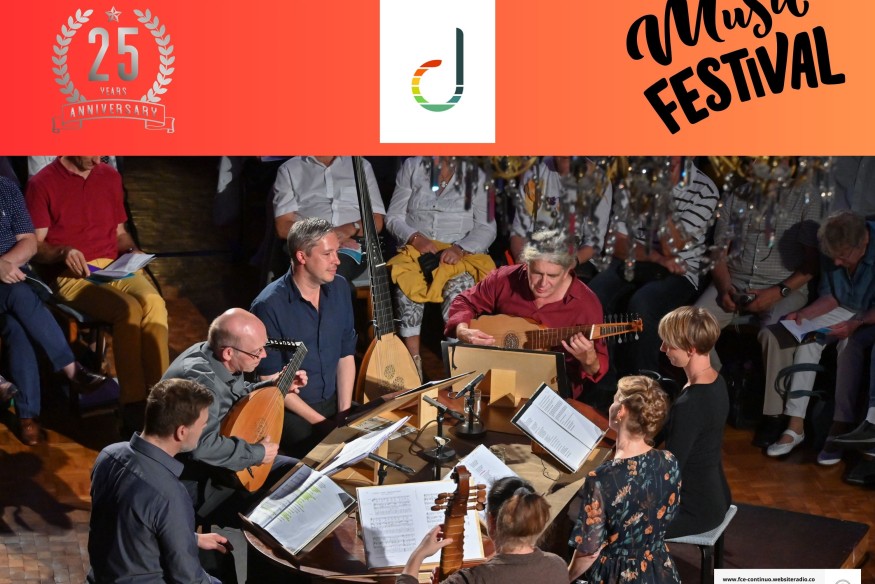

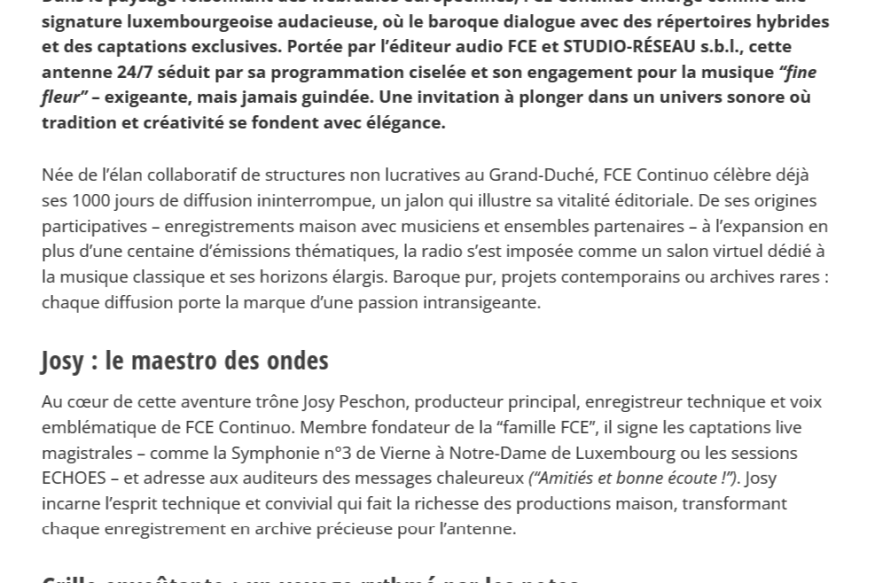







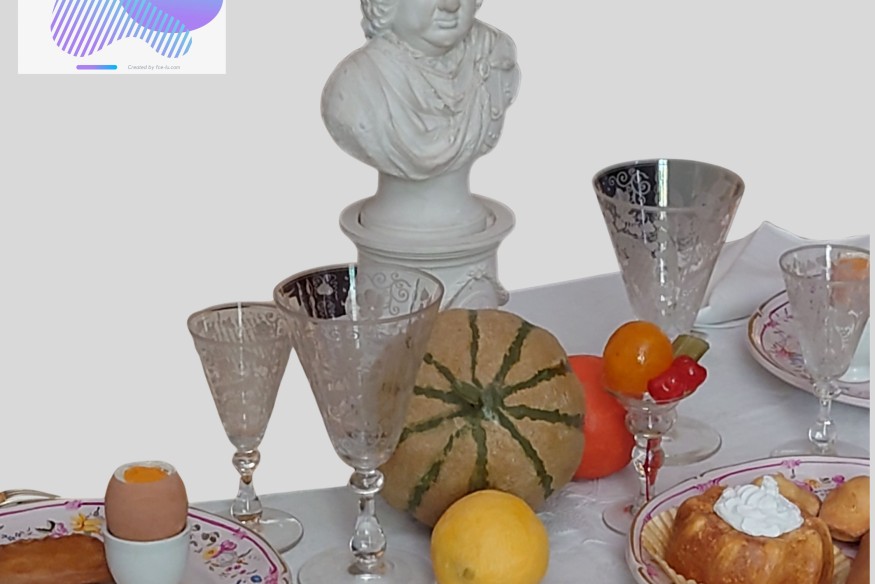
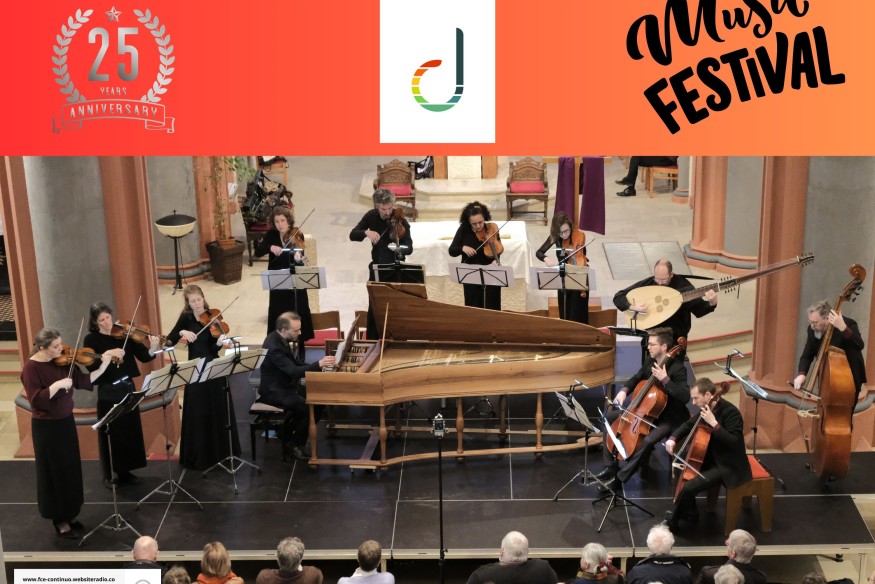






Commentaires(0)